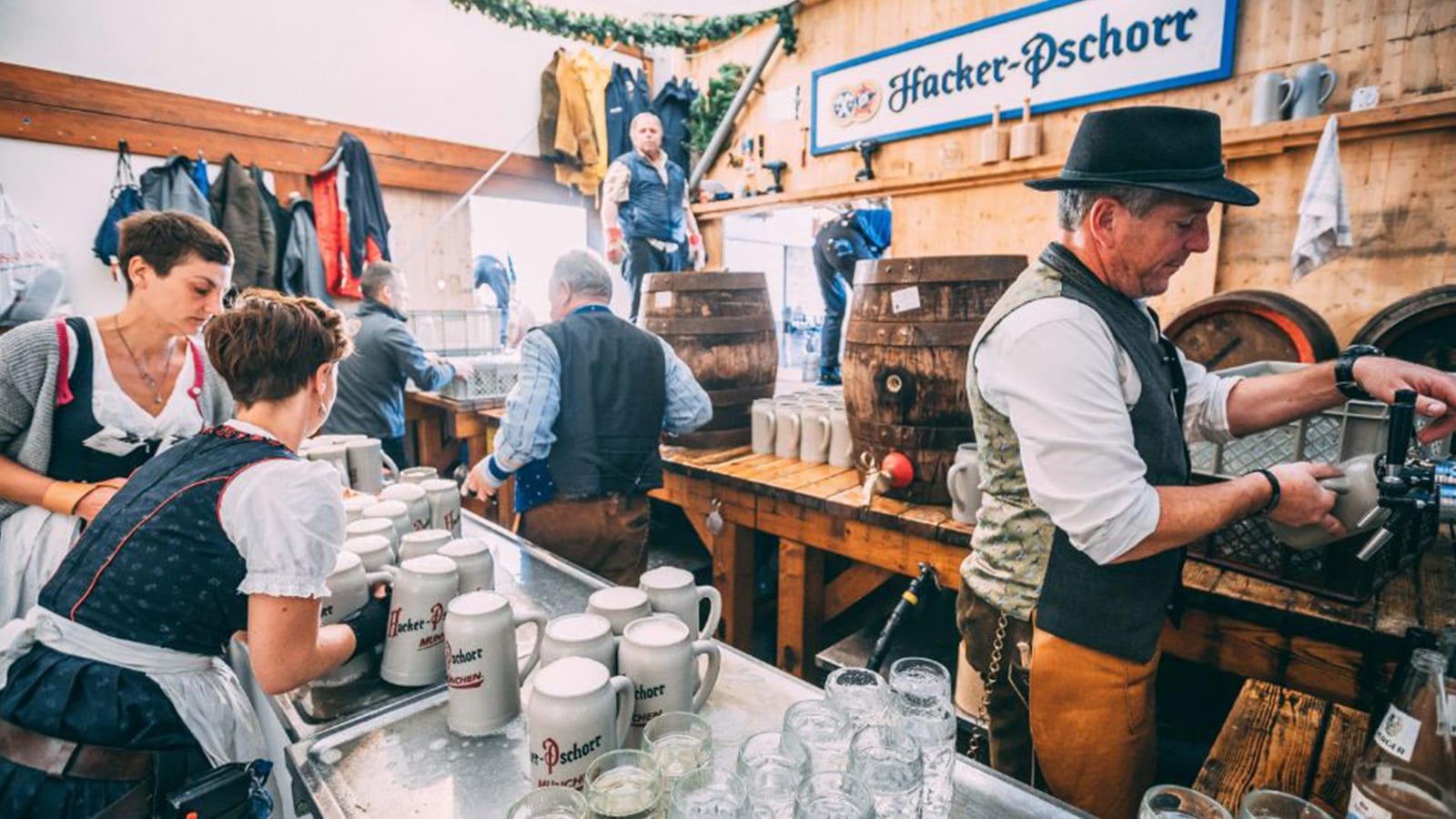The most expensive and strongest beer in the world
The most expensive and strongest beer in the world

Is Germany the world champion in drinking beer? Well, almost. Are 11 to 12 euros for a beer that expensive? It depends on what you’re using as a comparison. Is beer unhealthy? That’s a myth! Find out what the famous original gravity is, why the Purity Law was enacted, and where you can get beer on prescription.
1. World champion in beer consumption: A surprise!
Germany is the world champion in beer drinking — or so you might think, especially when you’re on the Wiesn. But it’s not the case. The Czechs have the highest per capita consumption of beer at 143.3 liters per year (2016). Whether Oktoberfest with its approx. 6 million liters of beer consumption is included or not, nothing changes the fact that, with 104 liters per person and year, Germany only ranks fourth in the beer drinker list, behind Namibia and Austria.
2. World champion in beer brands
Even if the Germans aren’t world champions in beer drinking, they do still hold a title: we’re first place in production. Over 1,300 breweries and more than 5,000 beer brands are located in Germany, most of them in Bavaria.
3. Beer vitamins, or: Beer is healthy
After all, it consists of about 93 percent water! But not just that: Beer contains plenty of minerals such as calcium, phosphorus, magnesium, and potassium. It also has various B vitamins (or, to help you remember: Beer vitamins!). And, of course, beer is a purely plant-based and vegan speciality
.
4. The strongest beer in the world
It’s not something you just lift to the end of the work day in a bar. First, you’d have to get carried home afterwards, and second, it’d be some expensive fun: The Schorschbock, from the Middle Franconian Schorschbräu in Gunzenhausen, is 57% alcohol, and one glass costs 603 euros. The good news: There’s a tasting bottle of 0.04 liters that’s only 24.90 euros.
5. The most expensive beer in the world
Think that a pour price of 11 to 12 euros, or even more of over 600 euros like the aforementioned Schorschbock, is a lot? Nonsense. The winner of an auction in Great Britain in 2009 forked over roughly 22,000 euros per liter to buy a bottle of Löwenbräu lager from 1937. The brew isn’t drinkable anymore — but the story is exciting: The beer survived the crash of the Hindenburg zeppelin on May 6, 1937 near New York.
6. Strong Wiesn beer: Just what is original gravity?
Wiesn beer still has its original gravity in addition to the alcohol content, but what does it all mean? It describes the nutrient content of the beer before fermentation. It’s produced by the malt grain, the starch of which becomes sugar during the mashing process. Proteins, amino acids, and vitamins are also part of the original gravity. They serve as nutrients for the yeast: The higher the original gravity, the more the yeast can ferment, which in turn results in a higher alcohol content. The strongest Wiesn beer is the Hofbräu beer, with 13.7% original gravity and 6.3% alcohol.
7. The Purity Law: why was it issued?
Everybody knows the Bavarian Purity Law of 1516, according to which only barley, hops, and water are allowed in beer. But why was it actually issued? First was the regulation of beer prices, and the provision to allow only these three ingredients would be the easiest to enforce. But it was also for the protection of citizens, namely from “Grut,” adventurous ingredients such as aniseed, caraway, juniper, but also toadstools.
8. Who created it?
No, not the Bavarians. Sorry. It was probably the Sumerians from Mesopotamia, in modern-day Iraq, back in the fourth millennium before Christ. According to legend, we owe our golden fortune to chance. Barley and wheat flatbreads were soaked in water, perhaps to make it easier for the sick to eat. The stuff began to ferment, and the pulp developed an intoxicating effect. Whether the patient was better after consumption or not is unknown.
9. Beer on prescription
“Can you prescribe me a beer, Doctor?” It sounds like a bar joke, but it’s the truth: Beer helps patients with urological complaints purge out the kidneys and flush out toxins. It should not be consumed too cold, and whether it can contain alcohol should be consulted with your doctor or pharmacist. Again, not in Bavaria, by the way, but in the Czech Republic and Poland.
10. The history of strong beer
The Wiesn beer is quite something, but it’s not the only strong beer in Bavaria: In the spring, during Lent, there’s strong beer. You can tell by its name, which always ends in “-ator”: Celebrator, Salvator, or Animator for example. It was the monks who let the church allow it with a trick, because alcohol was actually forbidden during Lent. They sent a load of their fasting beer to Rome. On the way there, the brew spoiled, and when the Pope tried it, he found it so nasty that he allowed it as a fasting beer.
Article source: Octoberfest.de
Come on In!
SUN - THURS
12:00pm - 11.00pm
FRIDAY
12:00pm - 11.30pm
Saturday
11:00am - 11:30pm
Last order 30 mins before closing
Contact US
Phone Us
07477 495 015
Email Us
Address
124, High Street, Rickmansworth,
Hertfordshire, WD3 1AB
